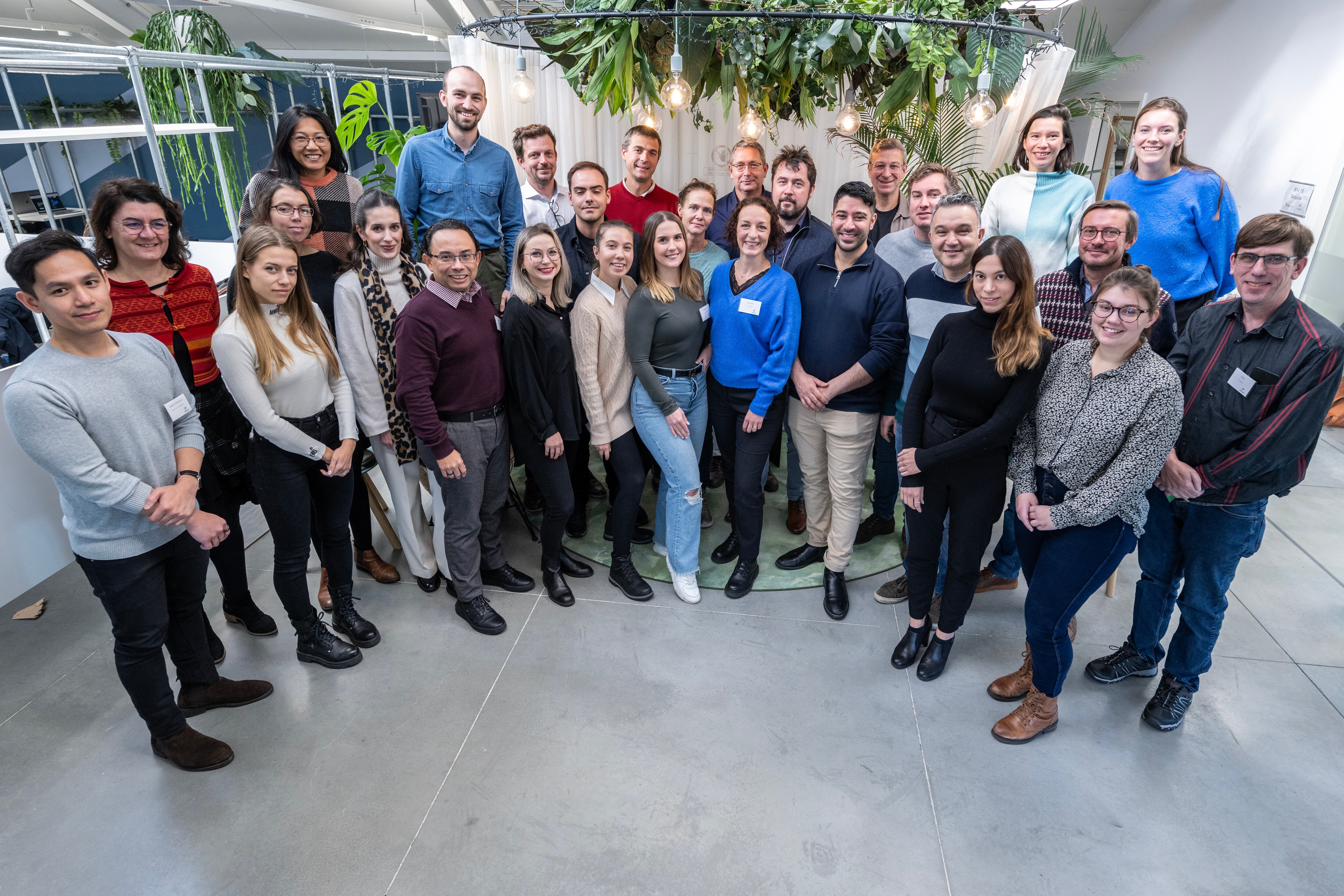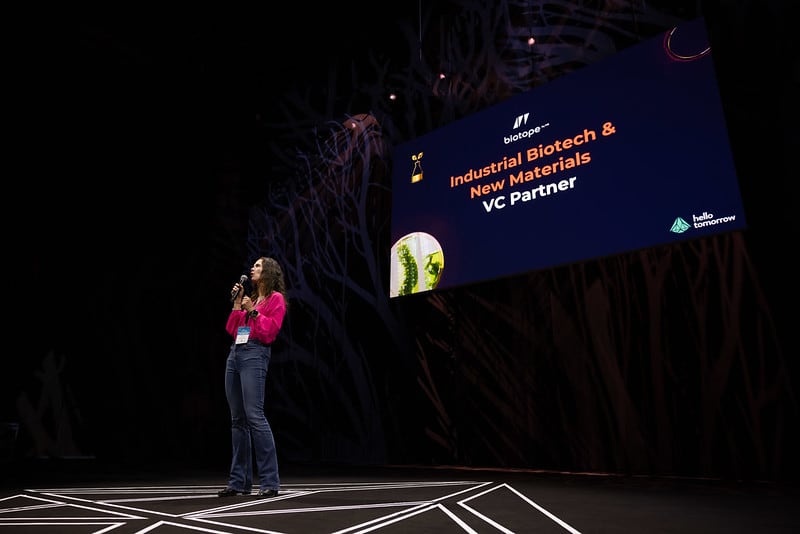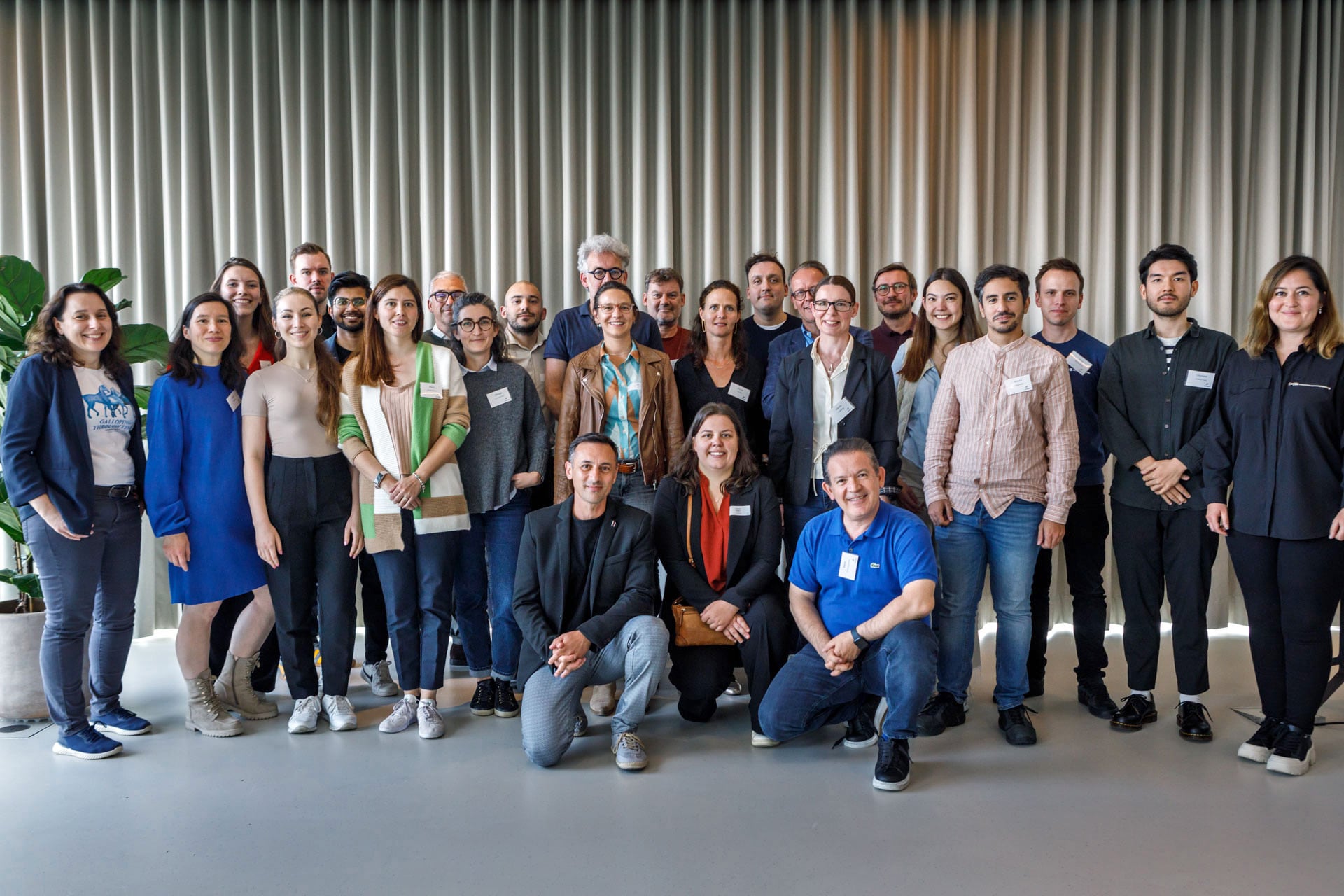Biotech innovation has the potential to reshape our food systems, materials, and manufacturing in service of a healthier planet.
But getting there is another story. For startups working at the earliest stages, the path from biotechnology to scalable impact is slower, riskier, and more capital-intensive than most investors are willing to accept.
The result? A growing number of ventures get stuck in the ‘valley of death’: too early for traditional VC; too complex for fast capital; and out of cash before the round closes.
Biotope Ventures was built to challenge that reality. As a hands-on investor and incubator, Biotope backs high-risk biotech startups for planetary health before they’re fully ‘investor-ready’ – often even before incorporation.
Their model pairs small-ticket investments with deep operational support, working side by side with founders to de-risk the science, build strong IP, and bridge the long road to follow-on funding.
Investing in planetary health
In Ghent, a small venture fund is attempting to address one of biotech’s hardest problems: backing high-risk, early-stage startups that don’t yet tick the usual investor boxes.
Biotope Ventures recently announced the first closing of its newly structured fund at €5 million, with a final close expected to bring the total to €9 million. The new fund formalizes a model that’s been operating for the past three years in pilot form: small-ticket investments; heavy operational involvement; and a focus on biotech for planetary health, encompassing agrifood, biomaterials and sustainable biomanufacturing.
“We’ve always had one foot outside traditional biotech for agriculture. From biological colorants to sustainable ingredients, we’ve supported innovations that doesn’t sit neatly in one box,” says Peter Cauwels, Fund Manager at Biotope Ventures.
“The focus on planetary health is now explicitly embedded in Biotope’s investment strategy.”
Small fund, big lift
Biotope’s model is atypical. The team gets involved extremely early, sometimes even before the company is formally founded, and pairs each investment with a bespoke, deeply hands-on support plan. It is deliberate and resource-intensive, and by conventional standards, quite inefficient when it comes to scaling the model.
But that’s the point, explains Annick Verween, Head of Biotope.
“There’s no step-by-step guide that works for every startup. Some teams need to build a sound IP strategy, others lack the right technical data, others need to focus much more on the business. We don’t run a program, we build a plan,” says Verween.

Each plan is detailed, tracked weekly, and covers technical, regulatory, business, and team-building milestones. Biotope’s team commits extensive time to each startup, and can be more than what’s financially sustainable under standard fund models.
“We put in more work with a €250K ticket than most investors with a €2.5 million ticket,” Cauwels says. “That’s the trade-off when you really want to de-risk something from the ground up.”
In today’s funding environment, that approach is becoming increasingly rare. Capital is moving toward safer, later-stage plays. Fewer exits mean fewer reinvestments, and funds focused on planetary health are often pressured to back companies closer to market.
The type of early, hands-on investing Biotope is doing is almost countercultural. But that’s also what makes it necessary. “Especially in biotech for planetary health, where technologies take time to deliver proof and require scientific depth, the traditional model doesn’t always fit,” says Cauwels. “We’re here to fill that gap.”
A structure that fits the mission
The new fund replaces what was previously a lighter structure – more holding company than formal vehicle. Now, with a professional fund framework and more formalized governance procedures, it makes the fund more recognizable to institutional partners.
Two new limited partners joined for this first close: the federal investment arm SFPIM and family office Edaphon. Other familiar names, including The Nest and Anacura, have returned. All share a belief in the fund’s dual objective: strong impact alongside financial return.
“Most of our LPs don’t come from a place of maximizing Internal Rate of Return (IRR) at any cost. They believe in our model, and in the kinds of companies we’re helping shape.” explains Cauwels.
Importantly, they understand the patience the strategy requires and the potential impact it may create.

More than capital
In its three-year pilot, Biotope committed roughly €4 million across its portfolio. In return, its startups have since raised more than €30 million in follow-on funding and created nearly 50 jobs. Four have secured their next round and gained value. No exits yet—that would be premature—but promising trajectories.
What’s harder to quantify, but central to Biotope’s thesis, is the added value of deep operational support at a formative stage. Most of the companies joining the Biotope portfolio are still at a turning point: scientifically promising, but not yet investible. In a space where early-stage capital is scarce, this type of hands-on guidance can be hard to come by.
It’s also a stage where diversity often falls by the wayside. Biotope is working to change that. More than 70% of its portfolio consists of mixed-gender founding teams, compared to an industry average that is still stubbornly low.¹
That’s not a coincidence, says Verween. “We bet on the jockey, not on the horse. Diverse teams are more resilient, more creative, and better equipped to tackle the real-world challenges. It’s not a ‘nice-to-have’, but a real strategic advantage.”
Building trust, one basecamp at a time
One of the program’s signature features is its biannual basecamp, a three-week intensive support program.
“We call it a basecamp and not a bootcamp, because it serves as both an immersive training for participating startups and a due diligence process,” says Verween.
“Basecamp is where we test for alignment. Not just around the science, but on the potential, the pace, the trust, and the willingness to work together,” adds Cauwels.
Over time, the team has become more confident in setting its boundaries. “In the early days, we were more eager to convince,” Verween says. “Now we’re more assertive. We know what it takes, and we’re selective about who we go that far with.”

Opening the ecosystem
Though operating independently, Biotope is backed by VIB, the leading life sciences research institute in Belgium. That comes with some limits (Biotope can’t invest in VIB IP to avoid conflicts of interest) but also with a unique strength: access.
“There’s a broader opportunity here,” says Verween. “VIB saw interest from strong startups and founders outside its own network who wanted access to the flourishing biotech ecosystem in the region, to the know-how and support. Biotope helps open that door.”
That outward-facing role is part of Biotope’s DNA. While Belgium’s Biotech landscape is strong, access to its infrastructure isn’t always easy for newcomers. Biotope is helping to shift that, and grows the ecosystem internationally, offering a bridge to founders from outside academic pipelines or beyond national borders.
Startups in the current basecamp cohort include teams from the Netherlands, Germany, the UK, Brazil, Uruguay, and the US.
Staying small, by choice
Biotope has no plans to grow its cohort size. The new fund simply extends Biotope’s runway – from three years to six – without changing its approach. It’s an intentional choice.
“We’re deliberate about staying small,” says Cauwels.
In a sector where fund size often signals success, Biotope is doubling down on depth over breadth. It won’t scale its support model because, by design, it can’t.
“Helping founders build at this stage takes time, consistency, and context. There’s no shortcut, no dashboard that can replace that. You have to be in it. Every company needs its own path, and we’re willing to walk that with them,” says Verween.
As other funds gravitate toward later-stage rounds or more scalable accelerator models, Biotope’s bet is different. If it can continue to show that this kind of investment – hands-on, high-risk, human-centered – can deliver viable companies, it will have made a case for an approach few others are willing to try.
References
- PitchBook. European VC female founders dashboard.


